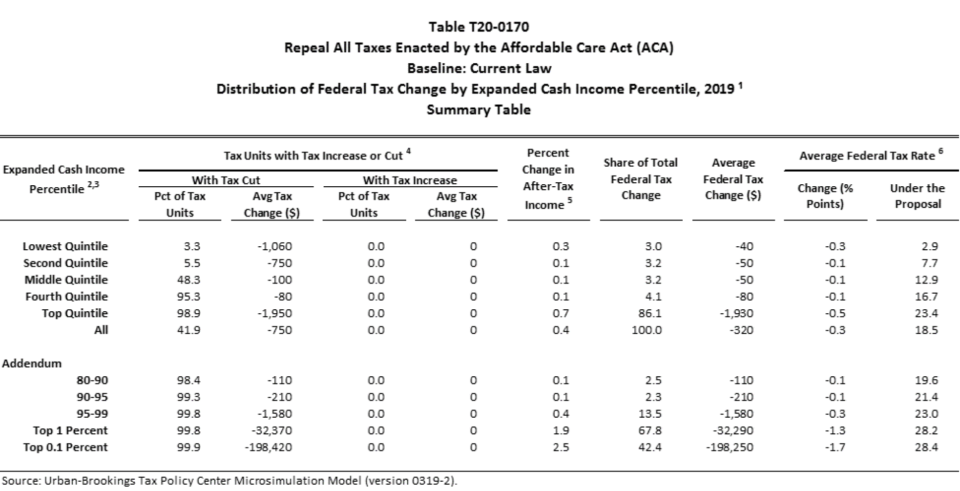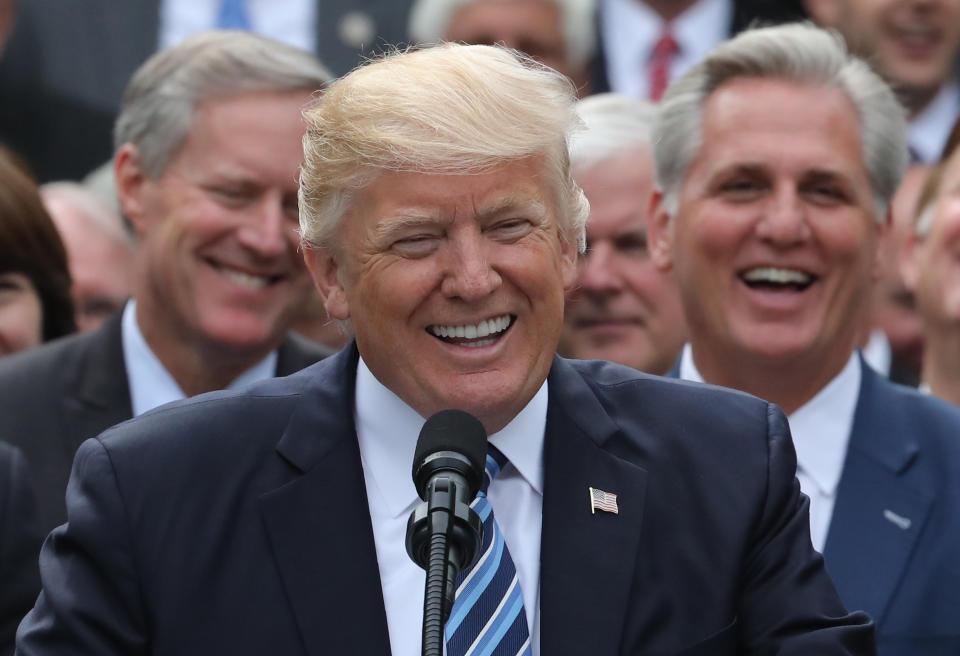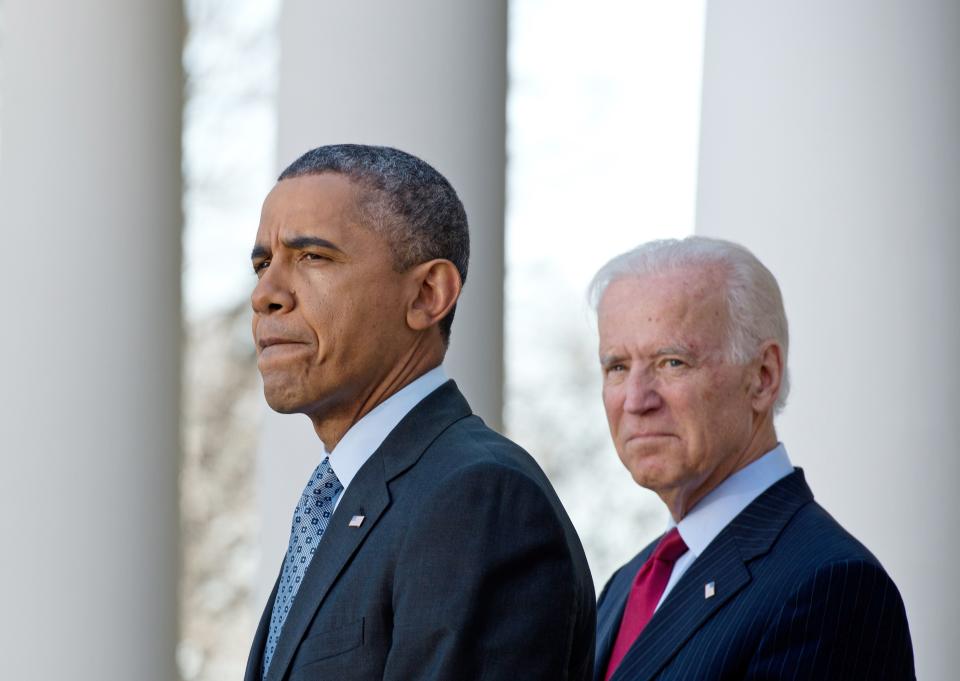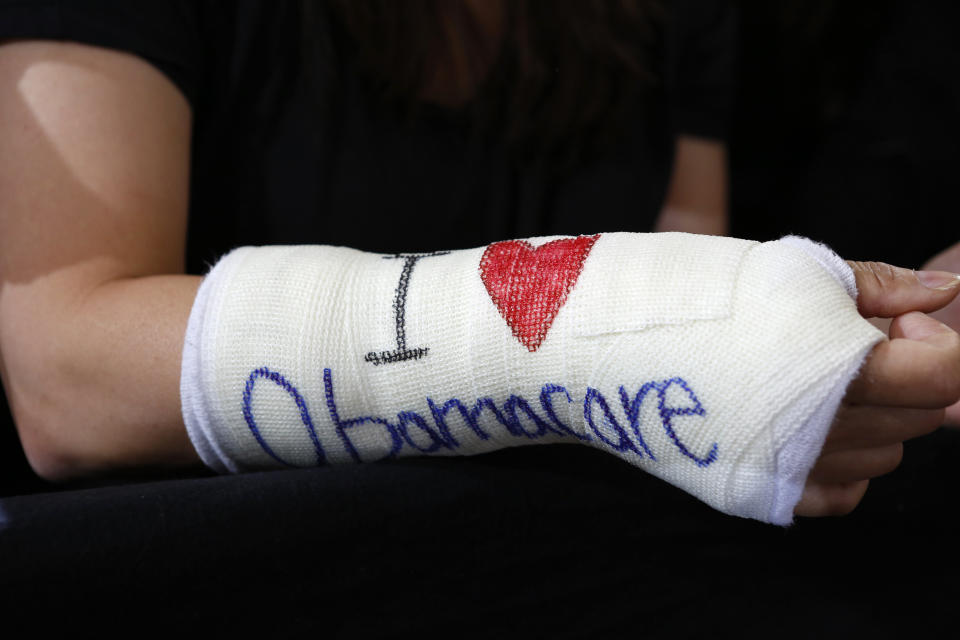Obamacare repeal would bring a huge tax cut for the rich, research shows
The fate of the Affordable Care Act (ACA), known as Obamacare, lies with the Supreme Court: The nation’s highest court will begin to hear arguments on Nov. 10 about the health care law’s constitutionality.
A ruling on the ACA’s “individual mandate” provision, and potentially the entire law, is expected in the spring of 2021.
And beyond forcing millions of Americans off their health insurance, a repeal of the ACA would bring a major tax cut for the richest Americans. According to research from the Tax Policy Center (TPC), the top 0.1% would receive a tax cut of $198,250 per year while the top 1% of Americans would see a tax cut of $32,370. (The Center for American Progress (CAP) came to a similar conclusion, citing the TPC data.)
“We knew that repealing ACA would be a windfall for the wealthy,” Seth Hanlon, a senior fellow at CAP, told Yahoo Finance. “But the magnitude of the tax cut for the top 0.1% — people making $3.8 million and upwards — is still stunning.”

‘Repealing it would unwind all that’
The ACA is funded by taxpayer dollars, which is part of the reason why the GOP has spent years attempting to dismantle the landmark law.
Individuals who make more than $200,000 a year are required to pay a 3.8% net investment income tax (NIIT), which applies to investment, income dividends, capital gains, royalties, etc. Some Americans in that income bracket are also subject to the additional 0.9% Medicare tax.
“The ACA expanded health care for low- and middle-income people and financed it largely with a tax increase on the rich,” Hanlon explained. “Repealing it would unwind all that. And specifically, the biggest tax provision was a new 3.8% tax on the investment income of high-income people. Since investment income like capital gains and dividends is extremely skewed toward the very wealthy, that is who would benefit the most from eliminating the tax.”

Many components of the ACA are tied to taxes. Obamacare’s initial individual mandate, before it was repealed by the GOP tax law in 2018, included a tax penalty for not having some kind of health insurance that was included as a way to protect those with pre-existing conditions.
“The way Congress did it made this trade-off,” Howard Gleckman, senior fellow at the Urban Brookings Tax Policy Center, told Yahoo Finance. “It said that insurance companies are required to sell insurance. I cannot prevent you from buying insurance because you have pre-existing conditions. That was the first piece of it.”
Gleckman stressed that this potential tax cut has been clear since the ACA’s inception back in 2010.
“Nobody made any secret of it,” he explained. “When the Obama administration and Congress proposed this, they said that these new taxes are ones on individuals, ‘We’re only going to apply to people who make more than $200,000 a year.’ It was really clear that was the target of this and that if the ACA was replaced either by Congress or declared unconstitutional by the court, the people who would benefit from it were the people who paid the tax in the first place, starting in 2010.”

‘Add insult to injury’
CAP’s Hanlon was critical about the fact that a repeal of the ACA would benefit higher-income Americans in addition to taking away health insurance from those who need it most.
“One striking thing about the pandemic is that the wealth of billionaires has continued to swell, even as millions of people have lost their jobs and livelihoods,” Hanlon said. “Cutting those billionaires’ taxes at this moment in time would add insult to injury.”
Data has shown that American billionaires saw their wealth increase by $406 billion, which is roughly 14% of their net worth, in the first six weeks of the coronavirus pandemic. It has continued to grow since then.

And while many of the taxes tied to the ACA have been repealed, there is still a fee paid by prescription drug companies: the excise tax known as the Branded Prescription Drug Fee. If that were eliminated, pharmaceutical companies would pay $2.8 billion less in taxes each year.
At the same time, taxes on the lower and middle classes would increase.
“The ACA established tax credits that help people afford health insurance purchased in the marketplaces, Hanlon said. “Those tax credits go to low- and middle-income households, to lower their premiums. The average premium tax credit is about $500 per month. If ACA is repealed, those premium tax credits would be repealed as well. In other words, it would raise taxes on low- and middle-income households while cutting taxes on the very wealthy.”
Adriana Belmonte is a reporter and editor covering politics and health care policy for Yahoo Finance. You can follow her on Twitter @adrianambells.
READ MORE:
How the Supreme Court could reshape Obamacare after RBG's death
Read the latest financial and business news from Yahoo Finance
Follow Yahoo Finance on Twitter, Facebook, Instagram, Flipboard, LinkedIn, YouTube, and reddit.
